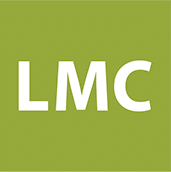Why is thyroid replacement therapy used?
Thyroid replacement therapy is used to increase thyroid levels in people who have low circulating thyroid hormones (hypothyroidism) – following either a failure of the thyroid gland (eg – Hashimoto’s) or after thyroid surgery.
What is desiccated thyroid?
Desiccated thyroid is made from pig or cow thyroid glands which have been processed, dried, ground to powder, and packaged in tablets/capsules. Each tablet/capsule contains organic compounds of the animal and variable amounts of T3 and T4. Desiccated thyroid is marketed with brand names of Armour Thyroid (most popular), Nature-Thyroid, Westhroid, WP thyroid, and NP thyroid.
What is levothyroxine?
Levothyroxine is a manufactured form of T4, packaged in tablets at various fixed doses. Levothyroxine is marketed with brand names of Synthroid and Eltroxin.
Which is recommended, desiccated thyroid or levothyroxine?
The American Thyroid Association (ATA) does not recommend use of desiccated thyroid for replacement therapy for hypothyroidism. The variability of the proportions of T3 and T4 within desiccated thyroid batches can cause unpredictable fluctuations of thyroid levels in the blood stream, making more challenging to control and associated with higher risks of side effects (particularly heart side effects because of the effect of T3). For this reason, desiccated thyroid is not recommended for people over the age of 65. As of 23-Aug-2017, the Ontario Drug Benefit (ODB) Formulary no longer covers cost of desiccated thyroid. Levothyroxine is the drug of choice for replacement therapy due to the predictable and fixed dose of T4 in each tablet.
How to best take thyroid replacement?
Thyroid replacement should ideally be taken at the same time every day, on an empty stomach, 30-60 mins away from meals and 4 hours away from calcium supplements – to improve its absorption. The lab test done routinely after starting thyroid replacement is not measuring the dose of thyroid prescribed but rather the amount of thyroid that was actually absorbed. Therefore, its important to ensure adequate absorption.
What are the effects of over or under medication?
Imagine watching the thyroid hormones circulating in the bloodstream as you would a program on TV.
With over-medication (or excessive thyroid hormones), the effect of thyroid is as if the “speed up” button has been hit on the remote: metabolism is faster causing more heat generated (tendency to feel warm/heat intolerance), increased sweat, increased appetite, weight loss, diarrhea, and higher bone-turnover (thinning of bones/osteoporosis). The nerves are more easily excitable causing nervousness, anxiety, irritability, palpitations, fast heart rate, irregular heart rate, chest pains, and tremors.
With under-medication (or insufficient thyroid hormones), the effect of thyroid is as if the “slow down” button has been hit on the remote: metabolism is slower causing less heat generated (tendency to feel cold/cold intolerance), decreased appetite, weight gain, constipation, and slow bone growth. The nerves are not as easily stimulated causing lower moods/depression, slow heart rate, difficulties with concentrations.
With both over or under medication, there can be associated irregularities in menstrual cycle, along with fatigue and hair loss.

